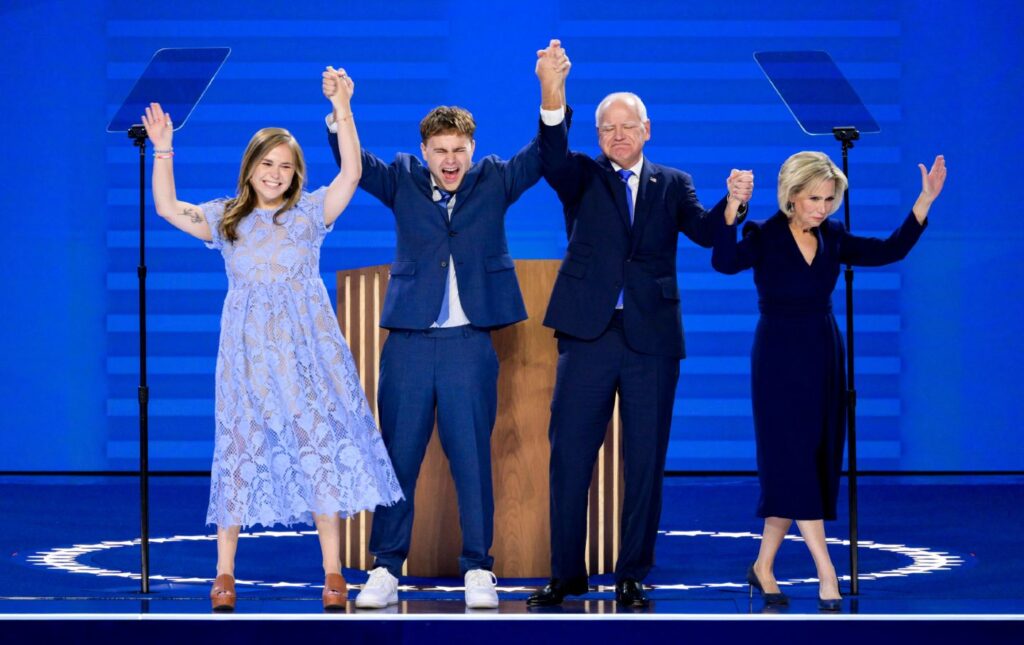At the Democratic convention on Wednesday night, Tim Walz’s 17-year-old son, Gus, had a heartwarming moment when he stood up, tears streaming down his face, and exclaimed, “That’s my Dad!” The sight was deeply moving.

As the mother of Georgie, a 38-year-old son with special needs who still lives with me, I saw Gus as one of “ours”—a sweet, sincere young man who appeared a bit confused by the grand political celebration.
Gus Walz, who has a nonverbal learning disorder, ADHD, and anxiety, is seen by his parents as having a “secret power” that makes him “brilliant” and “hyperaware.” I completely understand this perspective. Living with Georgie in the social whirl of New York, I cherish his inability to read social cues, which means he only ever speaks the truth. I recall an incident when Georgie, after leaving a fancy gathering, told the host, “Thank you very much. No one spoke to me really, so it was a very boring evening. The food was OK. I doubt I will come again.”
In the car, my husband Harry Evans exclaimed, “I have never been prouder of you in my life!” How many of us have wished we could be so candid about our experiences? There was also the time Georgie mistook Anna Wintour for Camilla Parker Bowles at a party or when he responded to a therapist’s question with, “Unfortunately not,” when asked if anyone had ever molested him. Georgie teaches me daily how much we rely on social niceties to navigate the world. His sister and I feel incredibly fortunate to have him in our lives, as did his father before he passed away in 2020.
For those who are different and lack support, the world can be isolating and harsh. The real challenge often comes after school, as it can be a social desert. A supportive workplace is crucial, offering the only sense of community many have, and the shift to remote work has been particularly tough for those with special needs, often cutting off their social connections.
Some companies claim to support the hiring of neurodivergent individuals, but this can sometimes be mere virtue signaling. Many employers imagine neurodivergent people as brilliant introverts working alone, rather than the more common scenario: someone who is a bit awkward, has a gentle demeanor, and might take a while to adjust.
My son Georgie, who enjoys wearing bandannas and nail polish, often mentions these interests in job interviews, only to be told they are “inappropriate.” But for Georgie’s family, being different is his most cherished trait.
The hardest part for a parent is sensing the scorn from strangers, which their child may not even notice—the whispered insults or snickers. The recent comment by Donald Trump Jr. about Senator John Fetterman, calling him a “vegetable,” is a stark reminder of how low the discourse can go.
Despite this, many hope that if the Harris-Walz ticket succeeds, parents of children with special needs might finally find a strong advocate in the White House. Coach Walz has been an inspiring figure for many kids, and it would be wonderful if he could champion this cause and become a powerful voice for those who struggle with being different.

